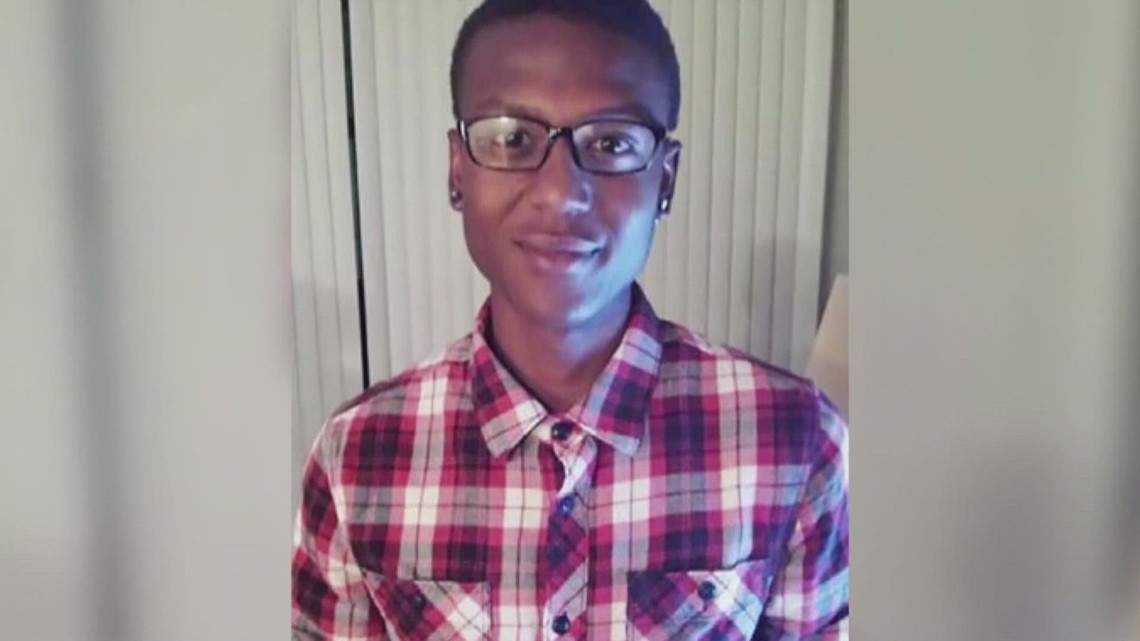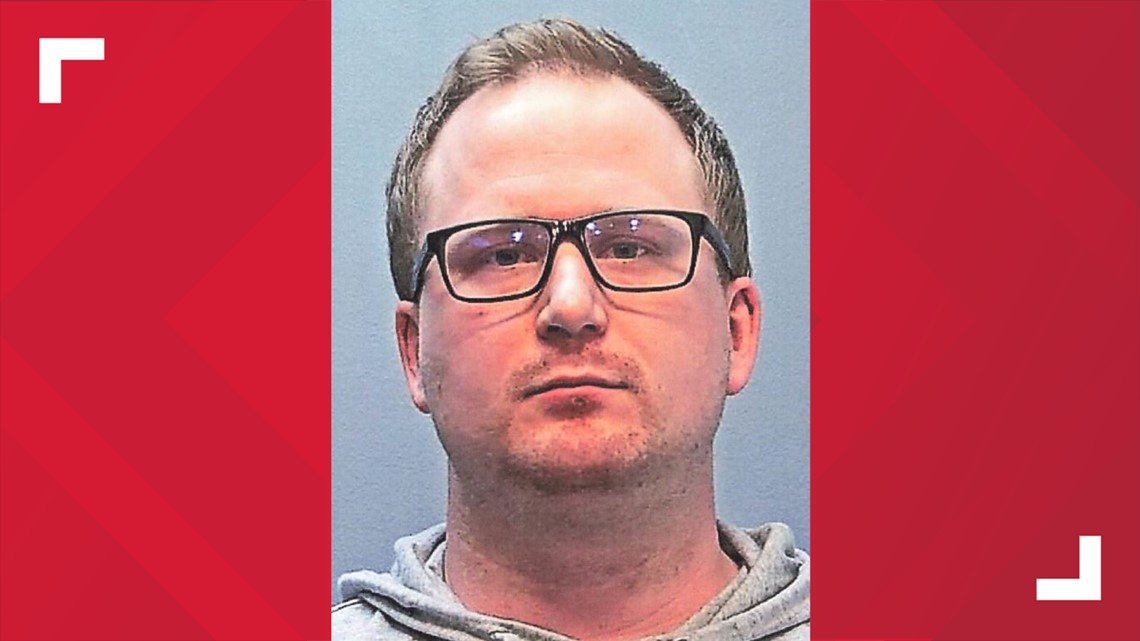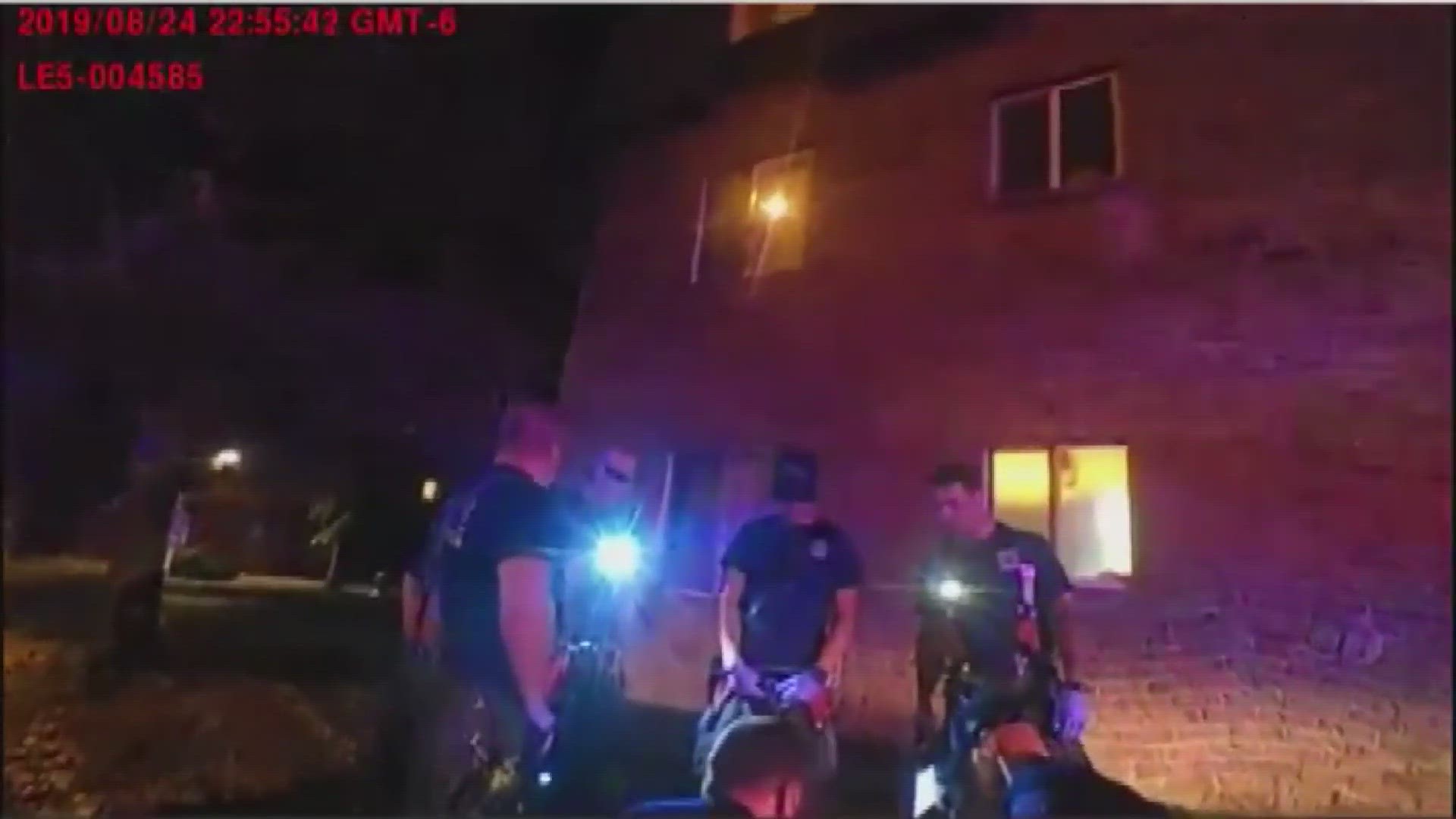AURORA, Colo. — The final prosecution witness in the trial for the third Aurora officer to face trial in the death of Elijah McClain testified Friday about the physical effects McClain suffered as the result of a carotid hold and struggle with officers.
"Did the injuries Mr. McClain suffered at the hands of law enforcement contribute to his death?" asked prosecutor Jason Slothauber.
"Yes," replied Dr. Roger Mitchell, a forensic pathologist who reviewed McClain's autopsy report and spent hours watching body-worn camera footage of his 2019 struggle with officers.
"Why is that?" Slothauber asked.
"Again all the things we talked about. The hypoxia, the acidosis, the aspiration. That vicious cycle of hypoxia and acidosis he was in. All of that is going to affect his heart. All of that is going to affect him and his ability to live. That violent restraint and subdual, is definitely contributing. If that violent restraint and subdual doesn't happen then I believe he's continuing to walk home and he's alive today."
Nathan Woodyard is charged with a single count of reckless manslaughter. He's among five people - three officers and two paramedics - who were indicted in connection with McClain's death.
Woodyard was the first officer to contact McClain on Aug. 24, 2019, after a teenage boy called 911 and relayed that he saw McClain wearing a coat and mask and acting "suspicious."
He grabbed McClain within eight seconds of approaching him, and he and fellow officers Randy Roedema and Jason Rosenblatt subdued and restrained him. In the midst of the struggle, Roedema shouted that McClain had attempted to grab Rosenblatt’s gun – an act the prosecution asserts did not happen.
That statement led the officers to wrestle McClain to the ground. During that struggle, Woodyard used a carotid hold that briefly rendered McClain unconscious before he was handcuffed. Later that same night, paramedics injected McClain with the sedative ketamine. His heart stopped, and he later died.


Mitchell's testimony on Friday focused on the events prior to that injection.
"Elijah McClain was a normal 23-year-old walking home when he was in a violent altercation with others - those others happened to be law enforcement," Mitchell said. "He was placed in a carotid neck hold that led to hypoxia, or a decrease in the amount of oxygen to his brain."
McClain was then physically restrained and handcuffed. During that time, he vomited numerous times - and inhaled some of it into his lungs, Due to the physical exertion of the struggle, Mitchell said McClain began to suffer from a condition known as acidosis, where too much acid builds up in the blood.
"That really creates a vicious cycle cause now once you've aspirated. That fluid is in your airway, in particular in the sacs of your airway, that exchange of oxygen and carbon dioxide across it so that's going to limit your ability to get oxygen and limit your ability to remove acid from your body," said Mitchell.
According to body-worn camera footage, McClain's last words, "Please help me," were said about five minutes before paramedics injected him with ketamine. However, Mitchell testified there was no way to know what would have happened to McClain if he hadn't been given the sedative.
"He needed help before the ketamine and he needed help after the ketamine. So I don't know if he had gotten help if he'd be alive. I don't know if he would have died if he didn't get the ketamine. I know that all of the things that have happened and the ketamine did not absolve the things that happened before the ketamine from its effect on him," said Mitchell.
"It was all of it that led to his death. I really can't tell you if something had happened differently if he would have lived other than if he would have gotten care before the ketamine, there would have been a better opportunity for him to live. I don't know if he would have."


Defense attorneys have insisted it was the ketamine - given by paramedics- that killed McClain. Medical records show he was given nearly two times the amount someone his size should have been given.
"An overdose of ketamine alone, you have recognized, can kill someone." said defense attorney Megan Downing.
"That is correct," Mitchell responded.
"It can stop them from breathing, correct?"
"Yes."
"It can cause cause cardiac arrest?" Downing asked.
"Yes."
"And that is essentially what happened to Elijah McClain pretty immediately after that injection, is that right?"
"That is what happened to Mr. McClain," Mitchell said.
Downing continued her focus on the paramedics by pointing out that they failed to take action to assist McClain when they arrived.
"When EMS arrives, they have another opportunity to check on him and see whether or not they can truly help him," Mitchell said. "That doesn't happen."
He testified that if they had taken vital signs, the paramedics likely would have found that McClain had a slowed heart rate.
Downing also pointed to prior testimony by Mitchell where he stated that McClain would have survived the carotid hold, had nothing else happened. That's a key point because it was the other two officers, and not Woodyard, who held McClain down after he was handcuffed.
Following Mitchell's testimony, prosecutors rested their case. There will be no testimony on Monday, and Woodyard's defense team is expected to start presenting their case on Tuesday. The trial could wrap up as early as Thursday.
In a separate trial that wrapped up earlier this month, a different jury convicted Roedema of involuntary manslaughter and third-degree assault. That same jury acquitted Rosenblatt on all charges.
Roedema, who was suspended without pay pending the outcome of his trial, has since been terminated. He's set to be sentenced in January.
Rosenblatt was fired earlier for responding “ha ha” to a photo other officers took appearing to administer a carotid hold on one another at the scene of McClain’s death. He could serve as an officer again if he renews his POST certification.
Jeremy Cooper and Peter Cichuniec, the paramedics who responded to the call, are set for trial in November. They are each charged with reckless manslaughter and numerous counts of assault. Both are suspended without pay while they await trial.
SUGGESTED VIDEOS: Elijah McClain death

